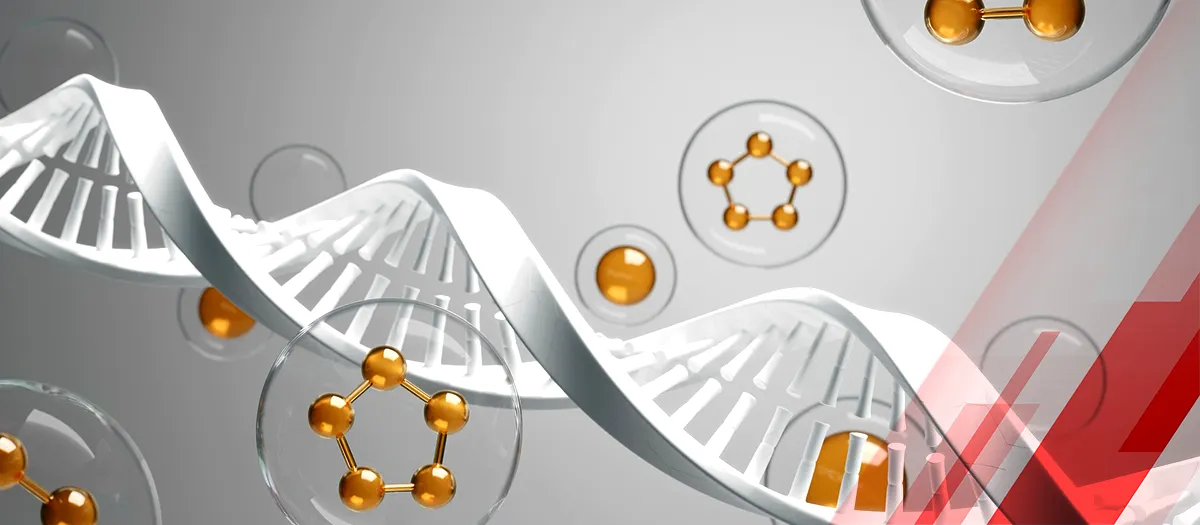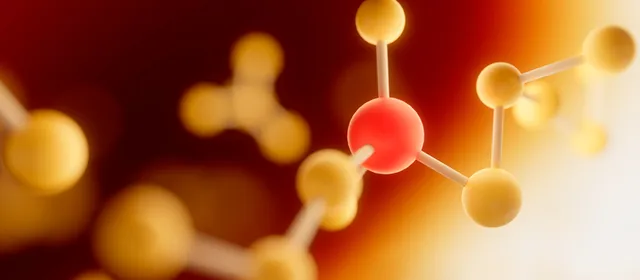Maintaining optimal health and well-being can often seem like an uphill battle in today's fast-paced world, where stress, pollution, and unhealthy lifestyle choices are rampant. Many individuals struggle with fatigue, weakened immune systems, muscle loss, and overall suboptimal performance. This is where amino acids (AA) come into the picture. These are the building blocks of life, offering a solution to combat these challenges and unlock the powerhouse of health and vitality within us.
What are Amino Acids?
Amino acids are organic compounds that play a fundamental role in our bodies. They are the basic structural units that make up proteins, enzymes, and neurotransmitters. There are 20 standard amino that our bodies require for proper functioning. These can be categorized into two groups: essential and non-essential. According to Kings Research, the global amino acids market is projected to reach a valuation of $51.35 billion by 2030.
Types of Amino Acids
- Essential AA: These are that our bodies cannot synthesize independently, necessitating their intake through diet. They include leucine, isoleucine, valine, lysine, methionine, phenylalanine, tryptophan, threonine, and histidine. They are critical for protein synthesis, muscle growth, and immune function.
- Non-Essential AAs: Unlike non-essential ones can be produced by our bodies. They include Alanine, Asparagine, Aspartic Acid, Cysteine, Glutamic Acid, Glutamine, Glycine, Proline, Serine, and Tyrosine. These contribute to various biochemical processes, such as enzyme and hormone production and neurotransmitter synthesis.
Benefits of Amino Acids
Here are some key benefits of essential nutrients:
- Muscle Growth and Repair: Essential nutrients are vital for muscle growth, repair, and maintenance, providing the necessary building blocks for protein synthesis. This benefit is particularly crucial for individuals seeking to enhance physical performance and maintain lean muscle mass.
- Enhanced Exercise Performance: Certain essential nutrients, such as branched-chain amino acids (BCAAs), have been linked to improved exercise performance. They can reduce fatigue, enhance endurance, and promote faster recovery after intense workouts, aiding in muscle preservation during exercise.
- Improved Cognitive Function: Essential nutrients play a significant role in brain health and cognitive function, serving as precursors for neurotransmitters crucial for proper brain signaling. They contribute to mood regulation, memory, and focus, supporting overall cognitive well-being.
- Immune System Support: Essential nutrients contribute to a healthy immune system by aiding in the production of antibodies and immune cells, helping the body fend off infections and diseases. They strengthen the body's defense mechanisms, particularly glutamine and arginine.
- Healthy Skin, Hair, and Nails: Essential nutrients are essential for maintaining healthy skin, hair, and nails, contributing to the production of collagen and ensuring the health and flexibility of these structures. They support skin elasticity, hair strength, and nail integrity.
- Energy Production: Essential nutrients are involved in energy metabolism, serving as sources of energy for the body. They can be converted into glucose for energy production and generate energy during high-intensity exercise, aiding in overall energy levels and performance.
How Do Amino Acids Differ From Proteins?
Here's how they differ:
- Composition: AA are small subunits made from carbon, hydrogen, oxygen, and other compounds. Amino acids are composed of three key components: a carboxyl group (-COOH), an amino group (-NH2), and a side chain or R group. On the other hand, proteins are comprised of chains of amino acids bonded together, creating polypeptides. These proteins can encompass numerous amino acids, sometimes numbering in the thousands.
- Size: AA are relatively small molecules, while proteins are much larger. Proteins can range in size from small peptides containing just a few amino acids to complex proteins with hundreds or thousands.
- Interdependence: Proteins and AAs exhibit a high degree of interdependence. Amino acids are the building blocks that make up proteins. Our bodies can break down proteins into AA and rebuild them into proteins. Both processes are important for our health
- Function: AAs serve as the raw materials for protein synthesis, which is essential for various bodily functions. Proteins, on the other hand, have diverse functions in the body. They can act as enzymes, hormones, antibodies, structural components, and transport molecules, among other roles.
- Dietary Importance: While AA can be obtained from both dietary sources and the breakdown of proteins in the body, proteins are primarily obtained through the diet. Our bodies require a balance of essential and non-essential ones, which can be obtained from protein-rich foods, to support optimal health.
Food Sources of Amino Acids:
Essential for our overall health, proteins are built from various components found in foods. While our bodies can synthesize some of these components, we must obtain others from our diet. Here are various sources abundant in these vital nutrients:
- Animal Sources: Meats like beef, poultry, and pork are rich in essential nutrients. Fish such as salmon and mackerel, along with eggs and dairy products like milk, cheese, and yogurt, also provide a significant amount of these essential nutrients.
- Plant Sources: Legumes such as lentils, chickpeas, and beans are excellent plant-based sources of protein. Soy products like tofu, tempeh, and edamame are complete protein sources. Quinoa, a grain-like seed, is another valuable plant-based protein source.
- Nuts and Seeds: Almonds, walnuts, chia seeds, flaxseeds, and hemp seeds are not only packed with healthy fats and nutrients but also contain vital components crucial for our well-being.
- Whole Grains: Brown rice, oats, and whole wheat are not only excellent sources of complex carbohydrates but also provide a variety of essential nutrients vital for our body's functions.
- Vegetables: While vegetables may not be as protein-rich as animal or legume sources, they still contribute to our intake of these essential nutrients. Leafy greens like spinach and kale, as well as broccoli and Brussels sprouts, are among the vegetables containing essential nutrients.
- Spirulina: Spirulina, a blue-green algae considered a superfood, is a complete protein source. Incorporating spirulina into your diet, such as in smoothies, can provide a significant boost to your intake of these essential nutrients.
Final Takeaway
Amino acids are the key to unlocking our full potential for health and vitality. These indispensable building blocks play a crucial role in protein synthesis, enzyme production, neurotransmitter function, and immune support. By incorporating a balanced diet that includes protein-rich foods, we can provide our bodies with the necessary AAs to thrive. Whether you are an athlete striving for peak performance, an individual seeking improved cognitive function, or simply someone looking to enhance overall well-being, these hold the key to unlocking your true potential.



